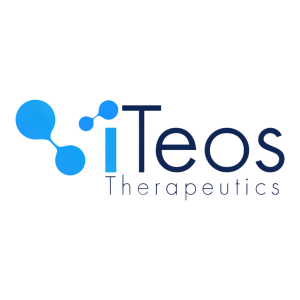iTeos Therapeutics Presents Interim A2A-005 Clinical Trial Data, Translational, and Preclinical Data from Inupadenant at ESMO Immuno-Oncology Congress
Rhea-AI Summary
iTeos Therapeutics (ITOS) presented interim data from Phase 2 A2A-005 trial of inupadenant combined with carboplatin/pemetrexed in non-small cell lung cancer patients. The trial showed a 63.9% overall response rate and 7.7 months median progression-free survival across all cohorts. The recommended Phase 2 dose of 80mg demonstrated particularly strong results with a 73.3% response rate.
Despite encouraging initial signals, iTeos has decided to deprioritize inupadenant to focus resources on other programs, as the clinical activity did not meet sufficient levels for further investment. The safety profile was manageable with no dose-dependent toxicity observed.
Positive
- High overall response rate of 63.9% across all cohorts
- 73.3% response rate at recommended Phase 2 dose (80mg)
- Median PFS of 7.7 months across all patients
- Manageable and tolerable safety profile
Negative
- Inupadenant program deprioritized due to insufficient clinical activity
- Company discontinuing further investment in the program
News Market Reaction 1 Alert
On the day this news was published, ITOS declined 4.28%, reflecting a moderate negative market reaction.
Data tracked by StockTitan Argus on the day of publication.
- Inupadenant + carboplatin/pemetrexed in Phase 2 A2A-005 trial demonstrated a
- Recommended Phase 2 dose (RP2D) of inupadenant 80mg + carboplatin/pemetrexed demonstrated
- Inupadenant + carboplatin/pemetrexed safety profile was manageable and tolerable, with no dose-dependent toxicity observed
- Inupadenant deprioritized to focus resources on other programs
WATERTOWN, Mass. and GOSSELIES, Belgium, Dec. 12, 2024 (GLOBE NEWSWIRE) -- iTeos Therapeutics, Inc. (Nasdaq: ITOS), a clinical-stage biopharmaceutical company pioneering the discovery and development of a new generation of immuno-oncology therapeutics for patients, today announced the presentation of clinical, translational, and preclinical data from its adenosine A2A receptor (A2AR) antagonist program, inupadenant, including interim data from the dose escalation portion of A2A-005, the Phase 2 trial assessing inupadenant and platinum-doublet chemotherapy in post-immunotherapy metastatic non-small cell lung cancer (NSCLC) patients, at the European Society for Medical Oncology Immuno-Oncology (ESMO IO) Congress 2024.
“We believe our presentations at ESMO IO on the adenosine pathway demonstrate the strong efforts our research and discovery team have put into understanding this immunosuppressive mechanism,” said Michel Detheux, Ph.D., president and chief executive officer of iTeos. “While the initial signal for inupadenant’s RP2D in the A2A-005 trial compared to chemotherapy alone is encouraging and supports its differentiated, insurmountable profile, we as well as our scientific and clinical advisory boards believe it does not meet sufficient level of clinical activity to warrant further investment. We remain committed to focusing our resources on developing differentiated, first- or best-in-class therapies and look forward to providing updates on our pipeline in 2025.”
Mini Oral Sessions
Title: Inupadenant Combined with Chemotherapy in Patients with Non-Squamous NSCLC Progressing On or After Immune Checkpoint Inhibitor Therapy: Results from Dose-Finding Part of the A2A-005 Trial
Summary: As of the October 29, 2024 data cutoff, the topline data from the dose escalation portion of A2A-005 presented at the ESMO IO Congress were based on 36 patients eligible for safety and efficacy evaluation. Patients received inupadenant at 40mg, 60mg, or 80mg twice daily (BID) in combination with carboplatin/pemetrexed. All patients had a minimum follow-up of 6 months. Patient baseline characteristics were balanced across arms, with a slight imbalance of more patients with brain metastases in the 40mg and 80mg cohorts and ECOG status 0 favoring the 80mg cohort.
- The primary endpoint of the safety of inupadenant in combination with carboplatin/pemetrexed was observed to be manageable and tolerable, with no dose dependent toxicities.
- The secondary endpoint of ORR was
63.9% across all patients (53.3% at 40mg,66.7% at 60mg, and73.3% at 80mg). - The secondary endpoint of mPFS was 7.7 months across all patients (5.6 months at 40mg and 6.6 months at 60mg; mPFS remains unreached at 80mg).
- The exploratory biomarker of CXCL13, a B-cell chemokine and lymphoid structure marker associated with clinical activity, was observed to be restored by inupadenant after depletion by chemotherapy, with quicker restoration kinetics in patients with PFS greater than 6 months.
- As of the data cutoff, 8 patients remained on treatment (1 at 40mg, 1 at 60mg, and 6 at 80mg). The median follow-up was 9.7 months (10.6 months at 40mg, 13.1 months at 60mg, and 8.2 months at 80mg).
| Response Measure | Inupadenant 40mg + carboplatin / pemetrexed BID | Inupadenant 60mg + carboplatin / pemetrexed BID | Inupadenant 80mg + carboplatin / pemetrexed BID | Overall | ||||
| (N=15) | (N=6) | (N=15) | (N=36) | |||||
| ORR, % | 53.3% | 66.7% | 73.3% | 63.9% | ||||
| n ( | n=8 (26.6–78.7) | n=6 (22.3–95.7) | n=15 (44.9–92.2) | n=36 (46.2–79.2) | ||||
| Complete response, n (%) | 0 | 0 | 2 ( | 2 ( | ||||
| Partial response, n (%) | 8 ( | 4 ( | 9 ( | 21 ( | ||||
| Stable disease, n (%) | 7 ( | 1 ( | 3 ( | 11 ( | ||||
| Progressive disease, n (%) | 0 | 0 | 1 ( | 1 ( | ||||
| Not evaluable/no assessment, n (%) | 0 | 1 ( | 0 | 1 ( | ||||
| mPFS, months | 5.6 | 6.6 | NC | 7.7 | ||||
| Event n (%) ( | 13 ( (4.1-8.3) | 5 ( (0.4-NC) | 6 ( (4.9-NC) | 24 ( (5.1-11.0) | ||||
| Landmark 6-Month PFS % | (21.2-68.7) | (11.1-80.4) | (34.7-83.5) | (36.8-69.1) | ||||
CI, confidence interval; NC, not calculable
Title: The A2AR Antagonist Inupadenant Promotes Humoral Responses in Patients
Summary: Based on monotherapy clinical and translational data, inupadenant demonstrated modulation of humoral responses in patient blood and tumor tissue, supporting our previous finding that expression of antibody-secreting cells (ASCs) in tumor tissue is associated with non-progression in patient disease. Furthermore, CXCL13 expression, a protein involved in immune cell recruitment, activation, and adaptive immune response regulation, increased in patients treated with inupadenant and more rapidly and extensively in non-progressors compared to progressors. These findings confirm inupadenant plays a key role in B cell maturation restoration and may play a substantial role in delaying progression in end-stage patients.
Poster Sessions
Title: The A2AR Antagonist Inupadenant Promotes Humoral Responses in Preclinical Models
Summary: In preclinical models, inupadenant counteracted the A2AR-mediated inhibition of B cell maturation into ASCs and immunoglobulin production in both in vitro and ex vivo systems by modulating B cells at the level of the germinal center (GC). These findings suggest that inupadenant restores or even enhances B cell maturation towards ASCs and GC reactions in both secondary lymphoid organs as well as the tumor in the presence of A2AR signaling. Furthermore, this process is essential for producing high-affinity antibodies and potentially for sustained anti-tumor immunity.
Title: A Novel Tumor Adenosine Signature to Guide Indication Selection for Adenosine Pathway inhibitor
Summary: Based on the spatial quantification of adenosine in human tumors, we developed the first adenosine gene signature, demonstrating its potential for indication selection. This new signature, derived from 249 differentially expressed genes (DEGs) associated with metabolism and immune activation, showed high predictive power across tumor types. Furthermore, the adenosine signature was higher in tumors compared to healthy tissue and exhibited variable expression and prognostic value across tumor subtypes. These findings suggest that the adenosine signature represents a powerful tool for prioritizing tumor types which may benefit most from adenosine-targeting therapies and for understanding the mechanisms of adenosine-mediated immunosuppression.
About iTeos Therapeutics, Inc.
iTeos Therapeutics is a clinical-stage biopharmaceutical company pioneering the discovery and development of a new generation of immuno-oncology therapeutics for patients. iTeos Therapeutics leverages its deep understanding of tumor immunology and immunosuppressive pathways to design novel product candidates with the potential to restore the immune response against cancer. The Company’s innovative pipeline includes three clinical-stage programs targeting novel, validated immunosuppressive pathways designed with optimized pharmacologic properties for improved clinical outcomes, including the TIGIT/CD226 axis and the adenosine pathway. iTeos Therapeutics is headquartered in Watertown, MA with a research center in Gosselies, Belgium.
About Inupadenant (EOS-850)
Inupadenant is a next-generation small molecule antagonist targeting adenosine A2A receptor (A2AR), the primary receptor on immune cells whose activation by adenosine suppresses innate and adaptive immune cell responses leading to inhibition of antitumor responses. Optimized for potency, high selectivity of A2AR, and activity at high adenosine concentrations in solid tumors, inupadenant is uniquely designed with its insurmountable profile to inhibit the ATP-adenosine pathway and has the potential for enhanced antitumor activity as compared to other A2AR antagonists in clinical development. The therapeutic candidate is in Phase 2 development.
Internet Posting of Information
iTeos routinely posts information that may be important to investors in the 'Investors' section of its website at www.iteostherapeutics.com. The Company encourages investors and potential investors to consult our website regularly for important information about iTeos.
Forward-Looking Statements
This press release contains forward-looking statements. Any statements that are not solely statements of historical fact are forward-looking statements. Words such as “believe,” “anticipate,” “plan,” “expect,” “will,” “may,” “intend,” “prepare,” “look,” “potential,” “possible” and similar expressions are intended to identify forward-looking statements. These forward-looking statements include statements relating to the potential benefits of inupadenant and the adenosine gene signature; and iTeos remaining committed to focusing its resources on developing differentiated, first- or best-in-class therapies.
These forward-looking statements involve risks and uncertainties, many of which are beyond iTeos’ control. Actual results could materially differ from those stated or implied by these forward-looking statements as a result of such risks and uncertainties. Known risk factors include the following: success in preclinical testing and early clinical trials does not ensure that later clinical trials will be successful, and early results from a clinical trial do not necessarily predict final results; interim and early data may change as more patient data become available and are subject to audit and verification procedures; the data for our product candidates may not be sufficient for obtaining regulatory approval to move into later stage trials or to commercialize products; iTeos may not be able to execute on its business plans, including meeting its expected or planned regulatory milestones and timelines, research and clinical development plans, and bringing its product candidates to market, for various reasons, some of which may be outside of iTeos’ control, including possible limitations of company financial and other resources, manufacturing limitations that may not be anticipated or resolved for in a timely manner, negative developments in the field of immuno-oncology, and regulatory, court or agency decisions such as decisions by the United States Patent and Trademark Office with respect to patents that cover our product candidates; and those risks identified under the heading “Risk Factors” in iTeos’ Annual Report on Form 10-Q for the period ended September 30, 2024 filed with the Securities and Exchange Commission (SEC) as well as other SEC filings made by the Company which you are encouraged to review.
Any of the foregoing risks could materially and adversely affect iTeos’ business, results of operations and the trading price of iTeos’ common stock. We caution investors not to place undue reliance on the forward-looking statements contained in this press release. iTeos does not undertake any obligation to publicly update its forward-looking statements other than as required by law.
For further information, please contact:
Investor Contact:
Carl Mauch
iTeos Therapeutics, Inc.
carl.mauch@iteostherapeutics.com
Media Contact:
media@iteostherapeutics.com









